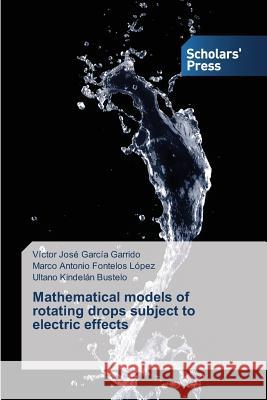Mathematical models of rotating drops subject to electric effects » książka
Mathematical models of rotating drops subject to electric effects
ISBN-13: 9783639712681 / Angielski / Miękka / 2014 / 144 str.
The problem of describing the evolution, stability and equilibrium shapes of a fluid droplet immersed in another viscous fluid and subject to different forces has provided the scientific community, for more than three centuries, with an endless source of inspiration and challenges. The origin of this area of study dates back to the theories of Isaac Newton that explain the Earths shape as a self-gravitating mass of fluid rotating in space, and the experiments designed by the belgian physicist Plateau between 1843 and 1869 to validate Newtons work. Over the last decades, models for drops subject to forces have been applied to develop many industrial processes such as tensiometry techniques, electrospraying and Field Induced Droplet Ionization spectrometry among others. The main goal of this book is to answer how rotation influences the evolution of a conducting drop that could be charged or subject to an electric field parallel to the rotation axis. This study combines full numerical simulation with an adaptive Boundary Element code and asymptotic analysis, and describes with precision the formation of singularities (Taylor cones or drop breakup) at the drops interface.











